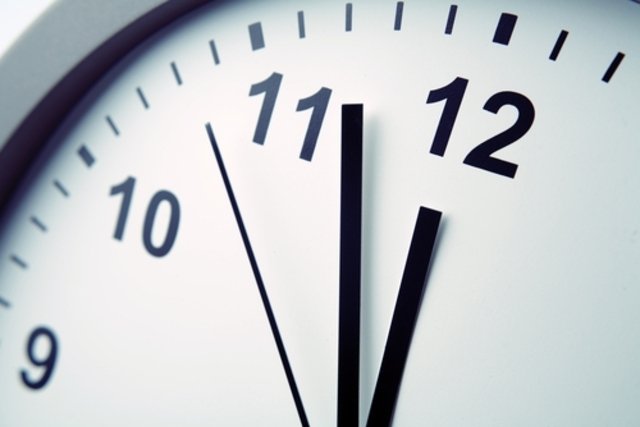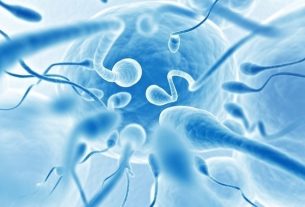Delayed menstruation can be a sign of pregnancy or be a consequence of excessive stress, very strong emotions, hormonal changes or even excessive caffeine consumption, for example.
In general, the delay in menstruation is a few days and can be regularized in the following cycle. However, depending on the cause, menstruation may be delayed by a few months, and it is important that a gynecologist is consulted.
If there has been unprotected intimate contact a few days before the missed period, there is a probability of pregnancy, and it is recommended to take a test, which can be purchased at pharmacies. See how and when to take a pregnancy test.

How many days can menstruation be late
A late period can normally be delayed by 5 days or, at most, 1 or 2 months. However, if your period is more than 3 months late, it may indicate amenorrhea, which is a medical term that defines the absence of menstruation. In these cases, if there is no pregnancy, the cause must be identified by a gynecologist and treated appropriately. Understand better what amenorrhea is and why it happens.
I had a negative pharmacy test but my period is still late. What can it be?
Although the tests are quite reliable, it is possible to give a false negative when it is carried out too early, when the woman’s cycle is irregular or when it is an ectopic pregnancy, for example. However, it is also possible for a woman to have some hormonal imbalances that delay the onset of menstruation, even when it is usually regular, and is not indicative of pregnancy. See what a negative pregnancy test could look like.
Main causes
The main causes of late menstruation are:
1. Pregnancy
One of the most common causes of delayed menstruation is pregnancy, as there are changes in hormonal levels so that the endometrium does not peel and, consequently, there is no menstrual bleeding.
In the case of pregnancy, it is common for delayed menstruation to be accompanied by some signs and symptoms such as abdominal swelling, colic, excessive tiredness, more sensitive breasts and darkening in the areola, for example. Know how to recognize the first symptoms of pregnancy.
2. Excessive physical activity
Excessive physical activity, as happens with athletes or people who are preparing for a test or sporting competition, for example, can lead to hormonal changes, as is the case with an increase in prolactin, which can lead to a delay in menstruation. However, it is important that the person knows that it is important to practice regular physical activity, as long as it is not excessive.
3. Very restrictive diets
Some very restrictive diets can lead to hormonal fluctuations that cause changes in menstruation. Furthermore, the reduction in nutrient intake causes the body to use the small amount of nutrients for more important functions, which can be reflected in delays or even absence in menstruation.
4. Changes in the reproductive system
Changes in the reproductive system, such as endometriosis, polycystic ovary syndrome or the presence of fibroids in the uterus, can also cause fluctuations in female sex hormones, which can lead to changes in menstruation.
5. Changes in the hypothalamus and pituitary
The hypothalamus and pituitary gland are glands located in the brain and are responsible for regulating sexual hormones. Diseases that cause changes in these glands can lead to fluctuations in the cycle and, consequently, delays or anticipation of menstruation.
6. Continuous use pill
The pill or other contraceptives for continuous use, as they provide hormones to the body daily and without breaks, prevent menstruation from occurring. However, small bleeds may occasionally occur, but on different days of the cycle.
7. Pre menopause
When the menopause phase begins to approach, it is normal for delays or even missed periods to begin. Some women may enter menopause at an early age and not realize that this is the cause of their missed periods. Find out when pre-menopause may appear and how to identify it.
8. Postpartum
Postpartum, menstruation can only return after the woman stops breastfeeding. However, it is necessary to use contraceptive methods during breastfeeding to avoid pregnancy. Understand when it is normal for your period to return after giving birth.
9. Use of contraceptives
In some women who stop using contraceptives such as the pill, implant or contraceptive injection, the menstrual cycle can take around 6 months to become regular again, which is perfectly normal and there is no reason to worry.
10. Hormonal changes in adolescence
In adolescence, hormonal changes are common, as the endocrine system is still maturing and the body is adapting to variations in hormone levels, and ovulation may not occur in some menstrual cycles, causing irregularities in the cycle or delay in menstruation.
However, in the case of adolescents who have already turned 16 years of age and have not yet menstruated for the first time, a gynecologist should be consulted to identify the cause as it may be primary amenorrhea, which may be related to defects in the reproductive system. , such as an imperforate hymen, vaginal septum or absence of uterus, for example. See other causes of primary amenorrhea.
11. Stress and anxiety
Stress and anxiety can increase the release of cortisol into the bloodstream, which is a type of hormone that participates in hormonal regulation carried out by the hypothalamus in the brain, and interfere with the release of estrogen and progesterone, responsible for regulating the menstrual cycle, leading to changes or delays in menstruation.
When should your period come?
Enter your details below and find out when your period is due:
What to do
If your period is late, the first step is to take a pharmacy pregnancy test to rule out a possible pregnancy. If the test is negative, it must be repeated after 7 days. If the pregnancy test continues to be negative, it is recommended to consult a gynecologist to identify the cause and treat the problem, if necessary.
Taking care of your health has never been easier!
The doctor may order tests, such as a progestin test and prolactin measurement, to identify the reason for this delay and indicate the most appropriate treatment.
Additionally, depending on what is causing the delay in menstruation, it is also important to:
- Reduce the intensity of physical exercise;
- Reduce stress;
- Maintain a balanced diet, avoiding very restrictive diets;
- Maintain ideal weight;
- Take the contraceptive pill, if recommended by your gynecologist, to regulate the menstrual cycle.
It is recommended to have regular medical appointments to identify possible health problems or diseases such as polycystic ovaries, endometriosis, anorexia, bulimia, hyperthyroidism or hypothyroidism, which can cause changes in the menstrual cycle.
Home remedies to reduce menstruation
There are some home remedies that can help reduce menstruation, but these should only be taken when there is no suspicion of pregnancy. Thus, you can drink cinnamon tea 1 to 2 times a day until your period stops or 2 to 3 cups a day.
These teas are natural options for when your period is a few days late and should only be taken for 5 to 10 days, and it is recommended to consult your doctor if your period does not come during this time. Furthermore, there is no scientific proof that they work in regulating menstruation. Check out other tea options for late menstruation.

Sign up for our newsletter and stay up to date with exclusive news
that can transform your routine!
Warning: Undefined array key "title" in /home/storelat/public_html/wp-content/plugins/link-whisper-premium/templates/frontend/related-posts.php on line 12
Warning: Undefined array key "title_tag" in /home/storelat/public_html/wp-content/plugins/link-whisper-premium/templates/frontend/related-posts.php on line 13




